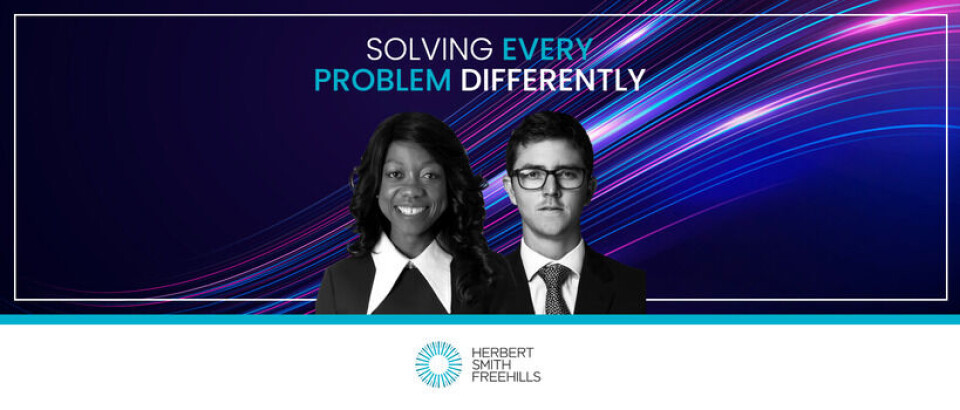While cutting-edge technologies and AI-powered legal tools are changing processes and offering new efficiencies to lawyers and their clients, people remain at the core of alternative legal services, say Plaxedes Makura and Michael van Breda of Herbert Smith Freehills.
“The reality is any of these novel concepts: process, technology and data-driven decision-making, ultimately are still anchored by people and evolution is people-driven,” commented van Breda, a senior manager in the global law firm’s Johannesburg Alternative Legal Services (ALT) team which recently won an African Legal Award for the second year running.
“In our team, our mantra is, ‘we know that we need to solve every problem differently’,” he added. “That has to permeate through our day-to-day operation. We know we can’t just default to a normal solution, we try to think one or two steps ahead, and look to the frontier and what is a more novel, more innovative way of solving that problem.”
In September, the African Legal Awards honoured Herbert Smith Freehills’ ALT Johannesburg hub – for the second year running – as Alternative Service Provider of the Year, praising the way the team combines cutting-edge technology and legal expertise, and has successfully disrupted a rapidly evolving legal market in Africa.
“Alternative legal services, or as it’s sometimes called ‘new law’, deals with parts of legal matters or processes that are data- or document-heavy, or routine and repeatable in nature and can be streamlined or made more efficient by the right combination of people, process, and technology,” explained Makura, a disputes manager in the Johannesburg ALT practice.
“These can be contentious matters, for example litigation, arbitration, or other forms of legal disputes, or transactional matters such as commercial real estate, finance, document-heavy corporate deals, or mass contract amendments following regulatory change.”
Makura gave the example of working on a disputes matter where there are 100,000 documents to review in a “very tight” three-week timeframe. AI-powered e-discovery technology like Relativity would be harnessed not only by her highly trained team in Johannesburg, but also by their colleagues in other Herbert Smith Freehills ALT hubs “located strategically across the globe” in places like the UK, China, Australia and the USA.
Using the ALT practice group’s #FollowTheSun philosophy, instead of only having the South African team working on a matter, the Australian or New York teams could work on the same matter. They can access the same database during their working hours, effectively giving clients a 24/7 service without any team having to work 24 hours a day.
“That’s where the process part comes in,” Makura explained, “because in each specific region the processes are all the same, so you’re almost virtually handing over without any stop-start. Because of the technology we use, the effort is really global, and across all practice groups.”
Herbert Smith Freehills’ ALT practice focuses not only on investing in the adoption of cutting-edge technologies, but also in training staff in their use, including invaluable time “getting their hands dirty” with various tools, noted van Breda. “The talent pool in South Africa is really rich, with very bright graduates. They’re all very professional and service-driven, which are fantastic attributes to have when you’re servicing global clients.”
The ALT team recruits very selectively from a technical standpoint, but cultural fit is also extremely important. “One thing that is vital is how you work as a part of a team, especially if you’re going to be working globally like we do,” said Makura. “Looking at our team in Johannesburg, I think that our collegiality and culture is second to none.”
Over the years, alternative legal services have evolved from looking for more effective processes to focusing more on tech and data-driven decision-making. “You need to decide how you’re going to tackle this challenge,” commented van Breda. “Upskilling is really valuable, but you need to embrace it as a delivery team and really buy into this way of working.”
To join Africa Legal's mailing list please click here

